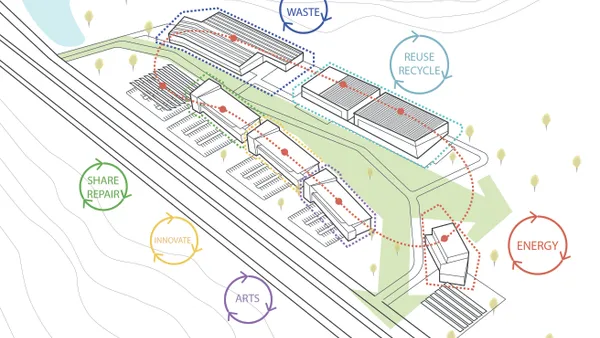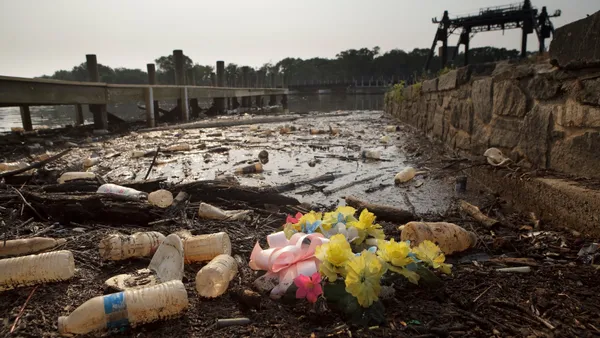UPDATE March 29, 2018: Providence Mayor Jorge Elorza vetoed a bag ordinance passed by the City Council earlier this month, citing concerns about economic effects on residents, as reported by Rhode Island Public Radio and the Providence Journal. Elorza announced the decision in a March 26 letter, which he said was prompted by concerns from the council's Racial and Environmental Justice Committee.
"While I support the intentions and goals of the policy, a critical step in the process was skipped: robust community engagement and public discourse," he wrote. "There is no harm done in taking our time to do this right, but we do risk harm if we exclude or ignore these communities and their concerns in this process."
The letter goes on to say that Elorza looks forward to signing any policy "that eliminates this environmental hazard from our community, while not burdening our low-income residents."
The council could technically override this veto, according to ecoRI News, with a vote of 10 or more members. The ordinance originally passed 12-1, with two abstentions.
Dive Brief:
- The Providence City Council voted March 15 to approve a ban on single-use plastic bags and place a fee of at least 10 cents on paper or thicker "reusable" plastic bags, as reported by WPRI and others.
- The ordinance takes effect in 12 months, with an exemption for bags used in laundry, dry cleaning and frozen food preservation. Retailers will be allowed to keep the fee, as the ordinance's sponsor estimates they currently spend as much as $3.9 million on bags per year.
- Providence is now the eighth Rhode Island municipality to approve a bag ordinance, according to the Providence Journal and ecoRI News. Two of those towns passed ordinances last month. Four more are currently considering their own.
Dive Insight:
These moves in Rhode Island follow a recent wave of action in neighboring Massachusetts, where more than 60 municipalities have now passed their own bag ordinances. Boston's ordinance, signed in December, is seen as a possible tipping point for statewide action and was also a model for efforts in Providence. Many of the same players were involved in this latest campaign.
Providence City Council Majority Whip Jo-Ann Ryan, who introduced the ordinance, projects it could save the city as much as $1 million per year and keep 95 million bags out of Rhode Island's landfills. Last year, the Rhode Island Resource Recovery Corporation raised tip fees at the Central Landfill for the first time in 25 years in an effort to preserve capacity at what will eventually be the state's last main disposal site. A reduction in bag volume likely won't make a big difference there, but it could deliver more noticeable results at the local level, where Providence has been struggling with high recycling contamination rates.
Curbside program mangers and MRF operators are often supportive of bag ordinances for this reason. Amid the push to clean up single-stream quality, cities around the country have been looking at plastic bags — either loose or tied up with recyclables inside — as a common starting point. Though because of what the bags symbolize in terms of consumption habits and plastic production, the conversation around regulating them remains politically charged in many states.













